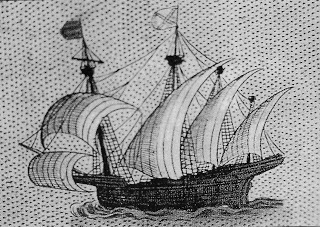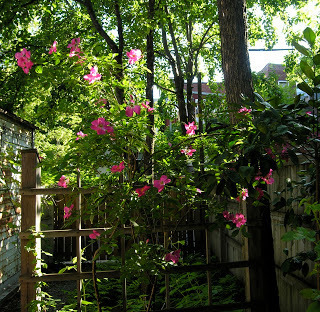Mary Soderstrom's Blog, page 80
July 1, 2013
Happy Canada Day, Happy Moving Day
While everyone else relaxes today in the rest of Canada, in Queebec more than a million households will move.
Any beer and pizza that gets eaten is likely to be eaten standing up because there are too many boxes to sit down.
And if there's a barbecue, it could very well be because the electricity/gas service hasn't been turned on yet.
The situation has prompted a lot of reaction over the years, even a film that came and went without making waves a couple of years ago. But here, for your holiday enjoyment, is the trailer.
Yhr
Any beer and pizza that gets eaten is likely to be eaten standing up because there are too many boxes to sit down.
And if there's a barbecue, it could very well be because the electricity/gas service hasn't been turned on yet.
The situation has prompted a lot of reaction over the years, even a film that came and went without making waves a couple of years ago. But here, for your holiday enjoyment, is the trailer.
Yhr
Published on July 01, 2013 10:03
June 29, 2013
Saturday Photo: Let's Hear It for Hostas
 Maybe 15 years ago I bought three hosta plants for, if I remember correctly, $4 a piece. I planted them in front, where I'd begun the slow process of eliminating the lawn.
Maybe 15 years ago I bought three hosta plants for, if I remember correctly, $4 a piece. I planted them in front, where I'd begun the slow process of eliminating the lawn. What a success! They now line the walkway in front and the flower plot in back, fill in the space between the property line and the garage. I've given many plants away as I thinned out mine, so at least a dozen neighbors also have a plethora of hostas.
These aren't the big specimen plants which you find in garden centres these days, but a rather modest striped leaf, blue flower variety. But I think they're just about the greatest easy-care garden plant around. And they're just starting to bloom this year.
Published on June 29, 2013 11:51
June 28, 2013
Okay, There's Climate Change! What to Do About It?
Another wet, wet day here, while the center of the continent suffers from heat and they mop up in Alberta. Gene Kelly offers an alternative.
A little silly, but lifts the spirits!
A little silly, but lifts the spirits!
Published on June 28, 2013 07:21
June 27, 2013
The War of the Bees: Dead Ones in Oregon, Live Ones in Toronto
A flurry of bee stories: thousands of them drop dead in Oregon, while a big swarm attacks a construction site in Toronto.
What would
say.
What would
say.
Published on June 27, 2013 11:43
June 26, 2013
Deep Conspiracy: Naomi Wolf on That Snowden Guy
As I think I've said here before, why should anybody be surprised that various branches of US intelligence has been following us. They've done it for a long time, as anybody who was/is active in politics knows. That they get it wrong often, is also well known.
And now Naomi Wolf (not to be confused with Canadian Naomi Klein whose credentials as a shit-kicker are perhaps more impressive) has come out on Facebook with her doubts about Snowden. She's been raked over the coals by some one the leflt, including in a Gawker piece that pokes fim at her.
Basically she says that Snowden, the NSA whistle-blower is too polished to be real. He doesn't have a lawyer at his side as nearly every authentic whistle blower does. She adds: "It is actually in the Police State’s interest to let everyone know that everything you write or say everywhere is being surveilled."
Interesting point of view. That's why we have to keep saying what we think--which is not the same as just saying anything to fill the silence in our souls.
And now Naomi Wolf (not to be confused with Canadian Naomi Klein whose credentials as a shit-kicker are perhaps more impressive) has come out on Facebook with her doubts about Snowden. She's been raked over the coals by some one the leflt, including in a Gawker piece that pokes fim at her.
Basically she says that Snowden, the NSA whistle-blower is too polished to be real. He doesn't have a lawyer at his side as nearly every authentic whistle blower does. She adds: "It is actually in the Police State’s interest to let everyone know that everything you write or say everywhere is being surveilled."
Interesting point of view. That's why we have to keep saying what we think--which is not the same as just saying anything to fill the silence in our souls.
Published on June 26, 2013 06:57
June 25, 2013
Nothing (All That) New Under the Sun: Solar-Powered Shipi Visits North America
 The New York Times
has a fascinating video this morning about a solar-powered ship visiting New York. The Turanor Planetsolar circumnavigated the globe last year, and is now following the sun in the Gulf Stream, studying pollution and ocean life.
The New York Times
has a fascinating video this morning about a solar-powered ship visiting New York. The Turanor Planetsolar circumnavigated the globe last year, and is now following the sun in the Gulf Stream, studying pollution and ocean life.The $17 million catamaran wasn't built for research but has been modified to gather samples and reading. In the video, captain Gérard d’Aboville explains how in addition to wind and currents, he must plot the ship's course taking into account projected sunshine. The ship's batteries when fully charged can power it for 72 hours, but better safe than sorry, he says, so sometimes he charts a detour to stay in the sun.
 Of course, using energy from the sun is nothing new in navigation. Sailing ships are dependent on the wind which is a product of differential heating and cooling of the earth's atmosphereby the sun. But note, too, that the ship is flying the Swiss flag even though the land-locked nation has never been thought of as a martime power. Don't underestimate what small nation can do, though. The other picture is a drawing of a Portuguese carvel from the 15th century when that small country on the edge of Europe set off to explore the world. :
Of course, using energy from the sun is nothing new in navigation. Sailing ships are dependent on the wind which is a product of differential heating and cooling of the earth's atmosphereby the sun. But note, too, that the ship is flying the Swiss flag even though the land-locked nation has never been thought of as a martime power. Don't underestimate what small nation can do, though. The other picture is a drawing of a Portuguese carvel from the 15th century when that small country on the edge of Europe set off to explore the world. :
Published on June 25, 2013 07:28
June 24, 2013
Happy Fête nationale from Someone Who Chose Quebec
 Today is Quebec's big holiday. Formerly named after French Canada's patron saint St. Jean, Jean the Baptist, it now is more inclusive. Everyone is supposed to be welcome, although some Anglophones and others shy away from too much celebration, fearing its nationalist connotation.
Today is Quebec's big holiday. Formerly named after French Canada's patron saint St. Jean, Jean the Baptist, it now is more inclusive. Everyone is supposed to be welcome, although some Anglophones and others shy away from too much celebration, fearing its nationalist connotation.Some time ago, however, I decided that I was going to take the Quebec powers-that-be at their word. We arrived in our mid-20s without a clear idea of what we were getting into. There have been certain ups and downs, but basically I'd rather live in Montreal than any other city I know.
Hence the flag which we fly on June 24. We belong here. So do our kids and our grandkids, and we aren't going to let anyone forget that we're part of this sometimes defensive but always interesting society.
Have a good holiday, tout le monde.
Published on June 24, 2013 11:12
June 22, 2013
Saturday Photo: Roses and Peonies
 What good is rain for? For making roses and peonies bloom.
What good is rain for? For making roses and peonies bloom. I've never had such lovely ones as this year, when the temperatures have been cool and the rain has been plentiful.
It's a pleasure to sit outside and smell the flowers. Only problem is: there hasn't been much time to do that and not get wet in the last couple of weeks.


Published on June 22, 2013 14:38
June 21, 2013
Last Day of School for Seven Weeks, Which Isn't Too Short at All...
This is the last day of school here: many kids have only a half day and walking around the neighborhood this morning, it was clear that the young people are flying high.
In other places, the 180+ days that are standard for the school calendar fit into a shorter period. Why I'm not sure. No allowance for snow days? Fewer teacher professional days? Shorter or fewer holidays?
And given that kids go back to school here the last week in August, that makes the summer relatively short in a climate where the season is so brief.
But there are a couple of advantages to the short summer vacation which I'm sure weren't on the table when the pattern was set a half century or more ago. The first is the fact that so many families have two working parents: a shorter summer school vacation makes organizing the kids summer easier. The norm seems to be summer day camp, often run by municipalities. My kids loved them, particularly Lukas who still has as his best friends the guys he met at Outremont's Parc Soleil when he was just a tad. They didn't go to the same school he went to for varioius reasons, but they found each other each summer and had a great time.
The other is that kids have less time to forget. Teachers will tell you that the first days or weeks of school in the fall frequently must be devoted to reviewing what was supposed to be learned the year before. Where kids are stimulated during the summer, there may be less fall-off, research from Johns Hopkins suggests. But for kids who are left to their own devices during the summer, the result may be critical for their success.
In other places, the 180+ days that are standard for the school calendar fit into a shorter period. Why I'm not sure. No allowance for snow days? Fewer teacher professional days? Shorter or fewer holidays?
And given that kids go back to school here the last week in August, that makes the summer relatively short in a climate where the season is so brief.
But there are a couple of advantages to the short summer vacation which I'm sure weren't on the table when the pattern was set a half century or more ago. The first is the fact that so many families have two working parents: a shorter summer school vacation makes organizing the kids summer easier. The norm seems to be summer day camp, often run by municipalities. My kids loved them, particularly Lukas who still has as his best friends the guys he met at Outremont's Parc Soleil when he was just a tad. They didn't go to the same school he went to for varioius reasons, but they found each other each summer and had a great time.
The other is that kids have less time to forget. Teachers will tell you that the first days or weeks of school in the fall frequently must be devoted to reviewing what was supposed to be learned the year before. Where kids are stimulated during the summer, there may be less fall-off, research from Johns Hopkins suggests. But for kids who are left to their own devices during the summer, the result may be critical for their success.
Published on June 21, 2013 05:46
June 20, 2013
India and China: Two Giants with Different Records When It Comes to Inequality
China is doing better for its citizens than India mainly because it is providing more equal opportunity, according to Amartya Sen, Nobel Laureate for economics in
The New York Times
today. His message should be heeded by leaders in other countries like the US and Canada which are becoming more unequal.
He writes: "The...gap between India and China is in the provision of essential public services — a failing that depresses living standards and is a persistent drag on growth.
"Inequality is high in both countries, but China has done far more than India to raise life expectancy, expand general education and secure health care for its people. India has elite schools of varying degrees of excellence for the privileged, but among all Indians 7 or older, nearly one in every five males and one in every three females are illiterate. And most schools are of low quality; less than half the children can divide 20 by 5, even after four years of schooling.
"India may be the world’s largest producer of generic medicine, but its health care system is an unregulated mess. The poor have to rely on low-quality — and sometimes exploitative — private medical care, because there isn’t enough decent public care. While China devotes 2.7 percent of its gross domestic product to government spending on health care, India allots 1.2 percent.
"India’s underperformance can be traced to a failure to learn from the examples of so-called Asian economic development, in which rapid expansion of human capability is both a goal in itself and an integral element in achieving rapid growth. Japan pioneered that approach, starting after the Meiji Restoration in 1868, when it resolved to achieve a fully literate society within a few decades. As Kido Takayoshi, a leader of that reform, explained: “Our people are no different from the Americans or Europeans of today; it is all a matter of education or lack of education.” Through investments in education and health care, Japan simultaneously enhanced living standards and labor productivity — the government collaborating with the market."
He writes: "The...gap between India and China is in the provision of essential public services — a failing that depresses living standards and is a persistent drag on growth.
"Inequality is high in both countries, but China has done far more than India to raise life expectancy, expand general education and secure health care for its people. India has elite schools of varying degrees of excellence for the privileged, but among all Indians 7 or older, nearly one in every five males and one in every three females are illiterate. And most schools are of low quality; less than half the children can divide 20 by 5, even after four years of schooling.
"India may be the world’s largest producer of generic medicine, but its health care system is an unregulated mess. The poor have to rely on low-quality — and sometimes exploitative — private medical care, because there isn’t enough decent public care. While China devotes 2.7 percent of its gross domestic product to government spending on health care, India allots 1.2 percent.
"India’s underperformance can be traced to a failure to learn from the examples of so-called Asian economic development, in which rapid expansion of human capability is both a goal in itself and an integral element in achieving rapid growth. Japan pioneered that approach, starting after the Meiji Restoration in 1868, when it resolved to achieve a fully literate society within a few decades. As Kido Takayoshi, a leader of that reform, explained: “Our people are no different from the Americans or Europeans of today; it is all a matter of education or lack of education.” Through investments in education and health care, Japan simultaneously enhanced living standards and labor productivity — the government collaborating with the market."
Published on June 20, 2013 12:06



